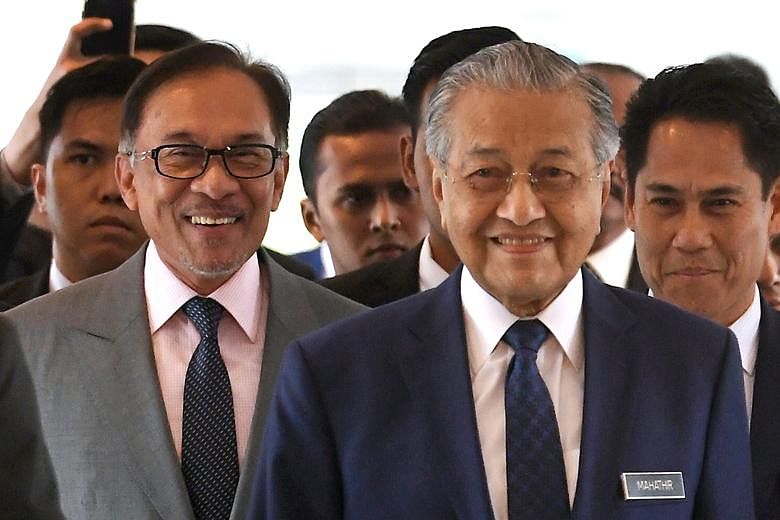KUALA LUMPUR - Malaysia's new government will move towards devolution of power in the coming years, by providing more autonomy to the 13 states, and independence to authoritative agencies.
The moves are part of the promises of reforms by the five-month-old Pakatan Harapan government.
In a midterm review of the 11th Malaysia Plan, the government provided details of how the administration would proceed in the latter half of its five-year economic blueprint that spans from 2016 to 2020.
In his speech in Parliament when presenting the midterm review, Prime Minister Mahathir Mohamad said his government is targeting annual economic growth of 4.5 to 5.5 per cent between 2018 and 2020. This is slightly lower than the 5 to 6 per cent annual target for between 2016 and 2020 as laid out by the previous Najib Razak administration.
Malaysia's budget deficit, which Najib had said would be balanced in two years, is estimated by the new government to widen to 3 per cent of gross domestic product.
Meanwhile, the report, in promising to instill trust in agencies like the police, graft busters, national audit agency, election commission, judiciary, attorney-general's chambers, and towards civil servants, outlines the separation of powers, diminishing overlaps that had enabled the government of the day to dictate agency appointments.
"Governance at all levels will be improved by strictly enforcing the doctrine of separation of powers between the executive, legislative and judiciary as stipulated in the Federal Constitution," the midterm review report said.
The 13 state governments "will be empowered to run their administrations by decentralising some functions including public transport, social services, agriculture development and environmental protection", the report said.
These functions are generally now controlled by the federal government.
For underdeveloped states - namely Sabah, Sarawak, Kelantan, Terengganu, Kedah and Perlis - the government promised "priority in the distribution of development allocation to promote more balanced socioeconomic development".
As part of reforming the civil service, the government is looking at improving efficiency by eliminating overlaps, reducing bureaucracy and speeding up delivery.
"The objective is to have a lean and agile structure, competent talent, effective project management and efficient local authorities," said the report.
To cultivate prudent spending, the government is reviewing its budgeting system, procurement with enforcement on open tenders for projects.
Malaysia has five-year plans meant to provide national direction and programmes for long-term socio-economic growth. The 11th instalment was presented in 2015 by Najib.


